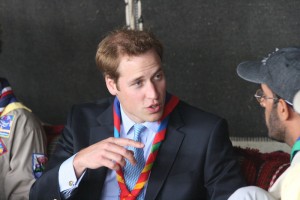Lesson Two - Socialization
2.4 Socialization Across the Life Course
Making Connections: Big Picture
Gap Year: How Different Societies Socialize Young Adults

Figure 5.8. Prince William, who took a gap year after secondary school. (photo courtesy of Alexandre Goulet/wikimedia commons)
Have you ever heard of gap year? It’s a common custom in British society. When teens finish their secondary schooling (i.e., high school), they often take a year “off” before entering college. Frequently, they might take a job, travel, or find other ways to experience another culture. Prince William, the Duke of Cambridge, spent his gap year practising survival skills in Belize, teaching English in Chile, and working on a dairy farm in the United Kingdom (Prince of Wales 2012a). His brother, Prince Harry, advocated for AIDS orphans in Africa and worked as a jackeroo (a novice ranch hand) in Australia (Prince of Wales 2012b).
In Canada, this life transition point is socialized quite differently, and taking a year off is generally frowned on. Instead, Canadian youth are encouraged to pick career paths by their mid-teens, to select a university or college and a major by their late teens, and to have completed all university schooling or technical training for their career by their early 20s.
In other nations, this phase of the life course is tied into conscription, a term that describes compulsory military service. Egypt, Austria, Switzerland, Turkey, and Singapore all have this system in place. Youth in these nations (often only the males) are expected to undergo a number of months or years of military training and service.
How might your life be different if you lived in one of these other countries? Can you think of similar social norms—related to life age-transition points—that vary from country to country?